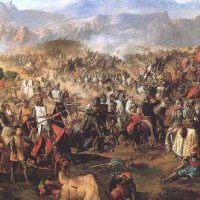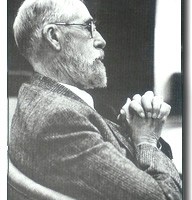William Buckley, il demiurgo dei conservatori; by Marco Respinti
«Kennedy si lamenta continuamente che noi stiamo tentando di diffondere il messaggio comunista in tutta l’America latina. Che si lamenti pure. Diffondere la rivoluzione è affar nostro». Così Fidel Castro arringa i compagni nel thriller di William Frank Buckley jr. Caccia alla mangusta (trad. it., Sonzogno, Milano 1988) dove la CIA cerca di far fuori il líder maximo alla vigilia dell’attentato che invece ucciderà JFK.
Caccia alla mangusta è un’opera di fantasia, certo; eppure Buckley qualcosina delle mosse della CIA la sapeva per davvero. Per molti versi Blackford Oakes, il protagonista dei suoi gialli (scontato il riferimento allo 007 di Ian Fleming, anche se qui l’agente è americano), interpreta Buckley stesso: sciccherie, Ivy League e qualche scrupolo morale quando è l’ora di premere il grilletto. Ma su quel melange di fiction e di verità storiche, di cui si compongono giocoforza i polizieschi buckleyani, la precedenza logica e cronologica l’ha proprio il rapporto di amorosi sensi con l’Agenzia, quella vera. Senza di essa, Buckley non sarebbe infatti mai stato Buckley; negli Stati Uniti non ci sarebbe mai stato il movimento conservatore; alla Casa Bianca si sarebbero seduti altri presidenti; insomma, il mondo sarebbe stato diverso. Buckley è allora la prova provata del complottone dei servizi segreti? Qualcuno lo ha pensato e pure scritto, ma ci si è guadagnato solo il Nobel del fantasy (che per l’appunto non esiste).
Buckley è infatti sempre stato troppo originale, libero, istrionicamente indomabile e talora persino stizzoso per agire da semplice figurante o far da fantoccio. E poi ha sempre avuto più classe. Mettiamola così: ebbe una idea geniale; la trasformò in un progetto serio quando a qualche cocktail incontrò le persone giuste che avevano la forza pratica di fargliela realizzare; se ne servì con una eleganza che ha fatto invidia a molti; e nel mezzo ci si è pure divertito. La CIA? Sia lode, se uno come Buckley ha saputo aggiogarla ad maiora.
Di Buckley il 27 febbraio sono ricorsi quattro anni da quando fu trovato, 82enne, stroncato da un colpo al cuore sul pavimento della sua casa di Stamford, in Connecticut, dove da qualche anno si era oramai ritirato. Non certo a vita privata, ma a riflettere su quella sua esistenza lunga, e ricca, e perché no pure felice, apparecchiandosi alla morte. Paura no, interrogativi sì. Sapeva a menadito, perché tutti i conservatori old-style lo sapevano a menadito, quella frase che Platone mette in bocca a Socrate, «Una vita non esaminata non è degna di essere vissuta», e lui di cose da esaminare ne aveva tante.
Nel 1997 aveva pubblicato Nearer, My God to Thee: An Autobiography of Faith (Doubleday, New York) chiedendosi profondamente di Dio, di quel Dio cristiano e cattolico che amava in modo profondo e maschio, anche guascone ma sempre devoto. Chiedersi di Dio, della morte e pure del dopo è infatti lecitissimo se si è credenti della stoffa di Buckley, cioè cattolici “da rito antico”, “Catechismo di san Pio X” e interesse per la mistica italiana Maria Valtorta (1897-1961). Era del resto venuto su così, Buckley, rampollo di quelle gang altolocate e un po’ puzzosottoilnasiste che a New York un tempo c’erano e che sono state anche fucina di cattolici tutti d’un pezzo, finiti poi a ingrossare le fila del mondo conservatore. Lì Buckley nacque nel 1925.
Ricordo distintamente quando, qualche anno prima dell’uscita in libreria di Nearer, My God to Thee, Russell Kirk (1918-1994), il decano dei conservatori, ricevette da Buckley – come la ricevettero alcuni altri spiriti magni di quel mondo – una richiesta di proferire qualche pensiero forte su Dio da rimuginare e macerare in quel suo libro di molto dopo, faticoso, accidentato, che egli andava lentamente costruendo. La fede granitica di Buckley riposava certamente sulla dottrina della Chiesa dei cattolici e però questa egli un dì l’apostrofò «madre sì, maestra no», facendo pure un po’ di confusione fra Papa, clero e teologi, al tempo del post-Concilio aggressivamente sbalestrato. A tratti fu interlocutoria anche la sua fede, magari persino dubbiosa, ma dov’è lo scandalo? La vertigine sublime del fascino di Dio che tutto abbraccia si palpa sempre in ogni cosa che Buckley ha scritto, e detto, e fatto, persino negli svarioni e negli errori, che sono pure stati tanti e grandi, proprio come tanti e grandi sono stati suoi nemici e i suoi critici che spesso avevano più ragione di lui ma altrettanto frequentemente carità pochina.
Read complete article in La Bussola Quotidiana
Towards the Good Society: A Conservative View, by Alvino-Mario Fantini.
In an interesting reply to an earlier post, “Mario” presented an insightful overview of the conservative landscape and summarized what he takes to be the foundational commitments of conservatives. I then asked him a question: How could they be applied to considering deliberately the events of the day in a way that might convince people who are not conservative? Alvino-Mario Fantini presents his response in this post. -Jeff
I think that a meaningful principle of the conservative tradition is that local customs and experiences most often do a far better job at responding to people’s needs than do centralized national systems. I think this is of special importance, even though it does divide the “conservative community.” While, the neo-conservatives seem to believe that there is a formula or pattern or idea that can be applied everywhere regardless of cultural or anthropological or historical context, the paleo-conservatives tend to be more respectful of the local or native traditions of people around the world. (Of course, certain things — female genital mutilation and honor killings, for example — raise other ancillary questions about the need for modernization and whether or not we outsiders should attempt to change such things, but that is another discussion.)
In short, I think that by knowing more about how and why the state has so often and so frequently failed in other contexts, and how political leaders have so often become enamored of power and state influence (leading to horrible atrocities in many countries), we will understand that government is too often — though not always — the main problem or obstacle in the development of people and the flourishing of human societies. Furthermore, I think we’ll see that ideological or utopian visions are almost always the source of policies and state actions that end up being inhumane, unjust and violent in the name of a great progressive leap forward.
Keep reading here: Deliberately Considered
The Battle of Las Navas de Tolosa: The Culture and Practice of Crusading in Medieval Iberia
Abstract: This study examines the phenomenon of crusading in the Iberian Peninsula through the lens of the battle of Las Navas de Tolosa (1212). This battle was both a major Christian victory over the Almohad Empire of Morocco and its Andalusian allies, and the most successful crusade of the papacy of Innocent III. As such, it serves as an ideal case study for the practice and culture of crusading in the early thirteenth century.
The examination of the battle helps to expand our understanding of crusading in a number of ways. First, by examining the institutional aspects of the battle, against the backdrop of the career of Innocent III, it becomes clear that Las Navas was the first crusade in which all of the aspects of papal crusade policy were successfully brought together and implemented. The victory gave the Pope the confidence and capital to officially institutionalize the crusade shortly thereafter in 1215. Secondly, a close study of the participants reveals that, despite the development of official crusade practices, there were many disparate views on what exactly it meant to go on crusade, and what crusaders were expected to do. The Iberian Christians differed greatly from many of the international crusaders both in their cultural attitudes and their expectations of the campaign. For the French participants, the campaign was part of a well-established crusading tradition, passed down from their ancestors. For the Spanish, crusade was a new concept, just beginning to take hold and influence their approach to the regular warfare with their Muslim neighbors. However, the victory of Las Navas helped to solidify and expand the acceptance of crusade ideology in the minds of the Iberian Christians in the ensuing years.
Click here to read this thesis from the University of Tennessee
What has Civilisation to do with Morals and Religion?
If civilisation has nothing to do with morals and religion, if social justice and political liberty are matters of indifference to it, it can have but little contact with human life in its most universal aspects. It is an artificial growth, a hot-house plant which can only flourish in a world in which everyone is witty and well mannered and well dressed; where poverty and suffering are unknown. Such a society can never exist in its own right. It is the result of certain rare and transitory moments in the wider life of humanity. Its exquisite frivolity is powerless to withstand the hard facts of life.
Christopher Dawson, 1928



